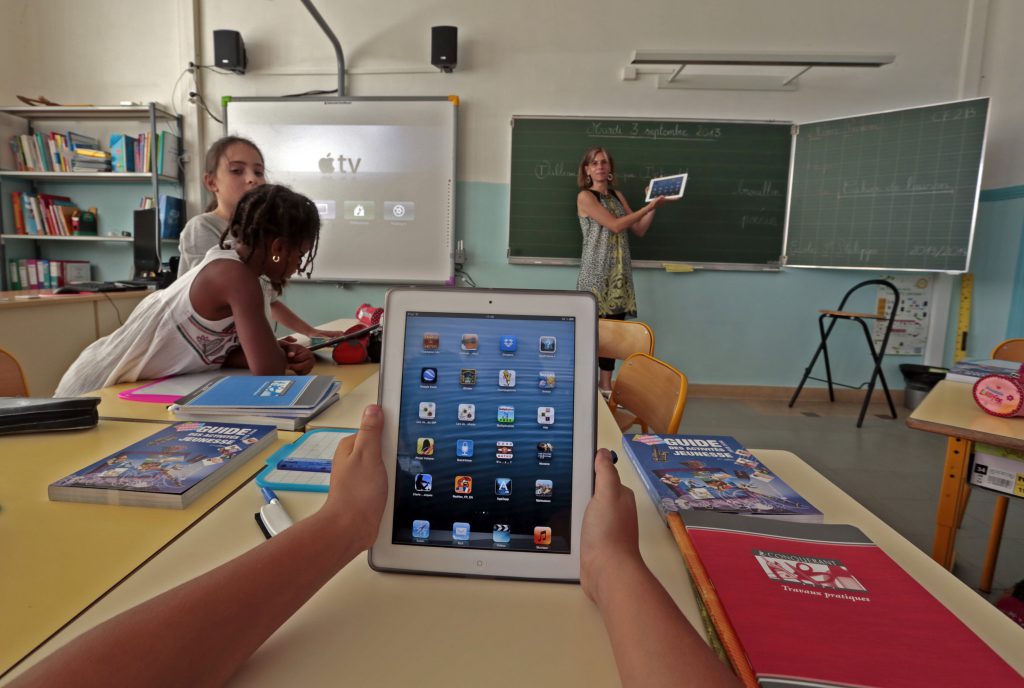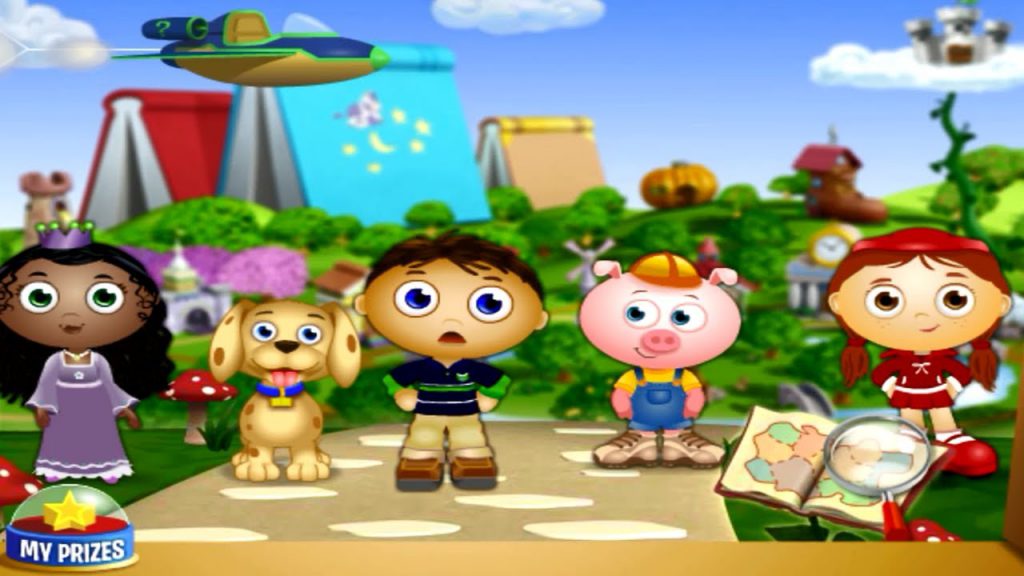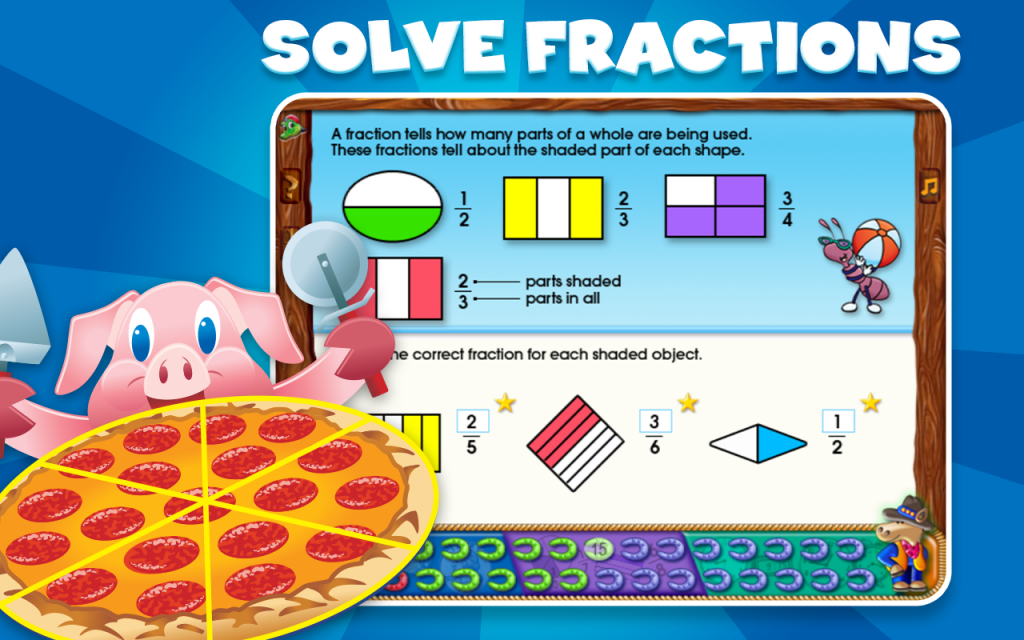
Kids nowadays might not be born with a smartphone in their hand, but they sure learn fast. Very often children start using smartphones, and tablets and playing video games before learning how to tie shoelaces, ride a bike, or prepare breakfast. For example, statistics show that 91% of children aged 2-17 play video games, and gaming among toddlers has increased the most. Fixation of technology and video games might raise concern for some parents, but game developers have long foreseen opportunity in young children, and started presenting educational mobile games. The basic premise is not to fight progress, but embrace and use it to our benefit – if children like games, might as well make them learn something. Kids’ games are a legitimate way of tricking children into education through having fun.
Kids Educational Games Make Learning Fun
Educational mobile games are a great way to teach kids various subjects that would otherwise be boring and difficult to memorize. Through games kids can learn languages and history, develop math and science skills, you can even introduce kids to music, and art and further develop their aesthetic tastes. It is very important to give relevant content that goes together with what kids are learning at school. So developers must design educational mobile games that complement school curriculums. And also it’s crucial to remember that fun comes first.
If you skip the game part and concentrate only on learning, it’s going to defeat the purpose. Kids will get bored. Masking the boring part of a game is where developers show off their skills. There is also lots of space to show off for graphic designers and storytellers because kids love environments that are out of this world. Talking animals, supernatural beings, fantastic landscapes, vivid colors, and crazy adventures are what make children tick and spend hours playing games.
It‘s not easy making anything for kids – whether it‘s books, movies or kids games, this is a very specific audience. They need constant stimulation and excitement, it‘s very difficult to fool them, so making good kids games is a huge challenge for any game studio. At the same time, educational mobile games give developers the chance to brush off the stern adult posture, dive into a child‘s world, and create something smart, pure and meaningful. Developers also must be honest to themselves when making kids educational games, because this is not a generic app for somebody to fool around with.
Uses in Practice
Kids’ educational games are perfect for occupying children on a trip or out in the city, but there is much more to these apps than just distraction. They’re already setting foot into classrooms and reshaping the way children learn by offering various apps and games to boost their learning experience. This is beneficial for both students and teachers. Educational mobile games help students better prepare for the virtual world they live in, and some of the more conservative teachers get a chance to embrace technology and have fun while teaching. With tablets in their hands, students collaborate while challenging each other to move forward in a game. This develops social skills and fosters a sense of community in the classroom.
The most important part is that technology lets kids engage in their interests and feel empowered. Educational mobile games at the same time encourage motivation and offer quality education. Even better, the students can take their games home and continue learning. The games below are very good examples of kids’ educational games that are both fun and beneficial.
Time, Money & Fractions On-Track
Time, money, and fractions are probably not something you would expect kids to like, but this app might change their mind. It’s a really fun educational mobile game that turns numbers into an adventure. Kids can listen to audio guides, track their progress, and even practice in a no-stress area where you don’t get graded. The game is colorful, lively and will definitely make children laugh.
Kids Academy

Educational games for kids are usually aimed at learning a specific subject, but how about a whole collection of preschool exercises? Kids Academy is a cool way to get children ready for school through interactive games, videos, and off-screen activities to improve their math, writing, and reading skills.
Educational Children’s Clock
Teach kids how to tell the time using old-fashioned watches. Educational Children’s Clock is probably the most fun and effective way to make children get in touch with time and learn to use analog watches. Practice shows that kids’ games like this teach children how to tell the time in about 20 minutes.
Super Why!

Super Why! features characters from the popular PBS show by the same name to help kids with reading and writing. It features three games that are led by different characters. Kids can help Alpha Pig follow the alphabet’s path to create words, Princess Presto lays out words kids can trace with their fingers to learn how to write, and Wonder Red teaches children how to find words that rhyme.
Drawnimal

Drawnimal encourages kids to draw an animal based on the letter they choose. This way kids practice the alphabet, improve their drawing skills, and learn how to think outside of the box. This is one of the best kids’ games to combine grammar and art at the same time. The app is also compatible with five different languages, including English, Spanish, French, German, and Italian.
Kids Games Reshape Education
Education technology is expected to become even more popular in the future. It’s difficult to say if kids’ games will become a staple of education, but the current industry for such games looks very promising. Despite the nature of such apps being associated with wasting time, educational mobile games help children develop just about any skill, whether it’s social or intellectual. The United States has already recognized the value of educational mobile games, and a grant scheme is helping encourage more development. Offering up to $1 million in funding, the Small Business Research Program at the Institute of Education Sciences helps support research and development into a variety of education technology products. Over the past 10 years, proposals for kids’ games have grown from just 5 percent of total applications to around 40 percent.





